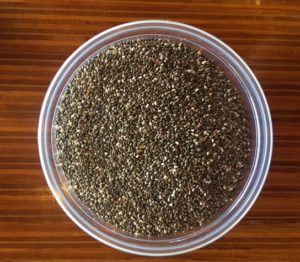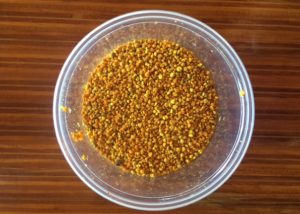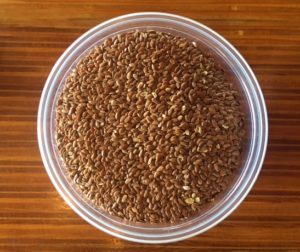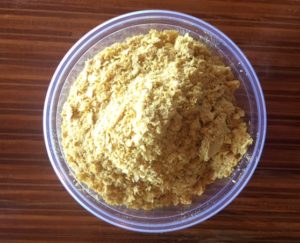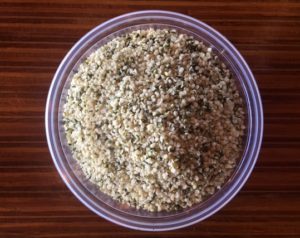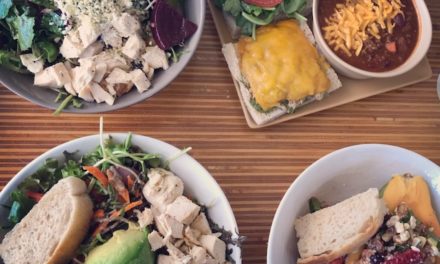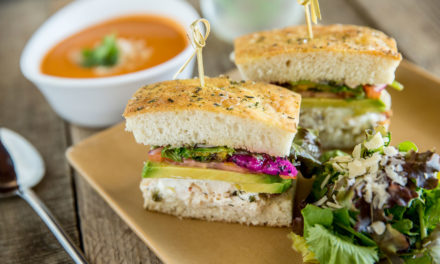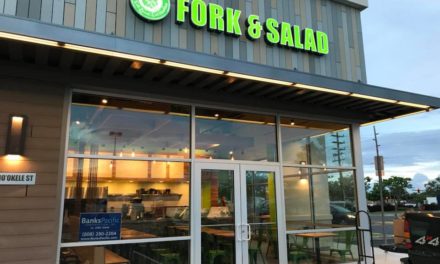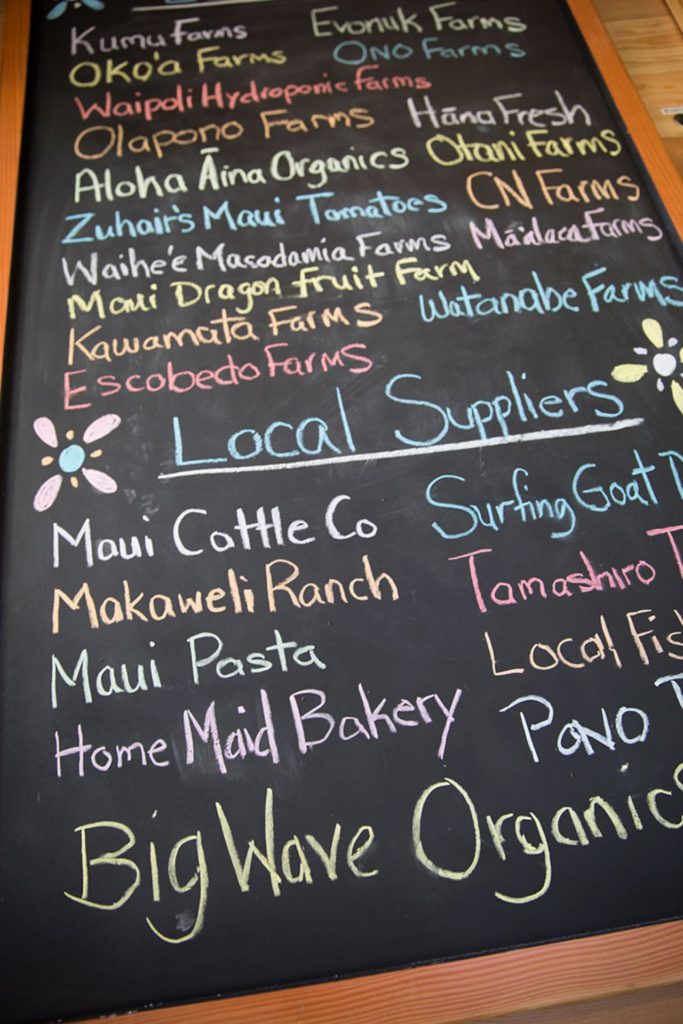When you build your own salad with 50+ fresh ingredients to choose from, the third step in your culinary construction process includes something we call Super Finishes. We offer five options: chia seed, bee pollen, flax seed, nutritional yeast and hemp seed. We selected each item for our menu based on its unique health benefits, nutritional value, flavor, and texture. These immensely healthy and delicious add-ons can get sprinkled atop any salad at the end of our line for just $1 more!
Many are in the “superfood” family, and provide a delicious addition before you dig in! So what exactly ARE they? We consulted reputable resource Healthline to gather the details and summarize the important points you need to know on these five finishes.
1. Chia Seeds
“Chia” might make you think of the funny growing pet decorations that came with a catchy jingle back in the day…but in fact, “chia” is the ancient Mayan word for “strength,” and legend has it that Mayans and Aztecs used chia seeds to fuel athletic performance.
Fast-forward to now, and these tiny black seeds are considered a modern-day superfood, as one of the world’s best sources of several significant nutrients.
A 1-ounce (28 grams, or around two tablespoons) serving of chia seeds contains:
Protein: 4 grams.
Fat: 9 grams (5 of which are Omega-3s).
Calcium: 18% of the RDA.
Manganese: 30% of the RDA.
Magnesium: 30% of the RDA.
Phosphorus: 27% of the RDA.
Chia seeds contain a fair amount of Zinc, Vitamin B3 (Niacin), Potassium, Vitamin B1 (Thiamine) and Vitamin B2. They’re also packed with antioxidants, which help protect the delicate fat in the seeds.
One ounce supplies only 137 calories and one gram of digestible carbohydrate! Almost all the carbs in chia seeds are from fiber; in fact, chia seeds are 40% fiber by weight, making them one of the best sources of fiber on earth!
Their protein content is considered very high. Chia may also aid in weight loss and bone strength, and could even lower the risk of Type 2 Diabetes and heart disease.
The seeds are a whole-grain, naturally gluten-free food, typically grown organically and non-GMO. Chia seeds come from the plant Salvia Hispanica, which is related to mint and grows natively in South America.
2. Bee Pollen
Bee pollen is created by young bees when they land on a flower. They carry the ball of pollen back to the hive and store them in the hive’s honeycomb, where it ferments into “bee bread,” which feeds a bee colony.
But these small crunchy pellets can feed humans as well, with some impressive health benefits. In fact, did you know, it’s considered so beneficial that the German Federal Board of Health recognizes bee pollen as medicine? Advocates say this superfood can:
-relieve inflammation
-work as an antioxidant
-boost liver health
-strengthen the immune system
-work as a dietary supplement
-ease symptoms of menopause
-reduce stress
-speed up healing
One tablespoon of bee pollen contains:
16 calories
0.24 grams of fat
1.2 grams of protein
2.18 grams of carbohydrates
250 types of nutrients, including vitamins and flavonoids
Those who are allergic to bee stings and pregnant women are advised to avoid bee pollen.
According to researchers, bee pollen has very high antioxidant properties, similar to those in fermented foods. Those include:
flavenols (found in chocolate)
resveratrol (found in wine)
lycopene (found in tomatoes)
vitamins A, C, and E
3. Flax Seeds
Flax seeds are one of the word’s oldest crops, grown since the start of civilization. Its scientific name translates into “most useful,” and just one tablespoon contains a solid amount of fiber, protein and omega 3 fatty acids, particularly the desirable ALA found in fish.
One tablespoon of ground flaxseeds contains the following:
Protein: 1.3 grams
Carbs: 2 grams
Fiber: 1.9 grams
Total fat: 3 grams
Saturated fat: 0.3 grams
Monounsaturated fat: 0.5 grams
Polyunsaturated fat: 2.0 grams
Omega-3 fatty acids: 1,597 mg
Flax seeds are also a rich source of some important vitamins and minerals, like magnesium, phosphorus, calcium, potassium, iron, folate and Vitamins B1 and B6. All this, and flax seeds contain only 37 calories per tablespoon!
They also have up to 800 times more antioxidant-rich lignans than other plant foods, which may help lower the risk of cancer. Flax seeds are known to improve digestive health, reduce blood pressure and bad cholesterol, regulate blood sugar and aid in weight loss.
“Most useful,” indeed!
Nutritional yeast has a nutty-cheesy “umami” flavor and contains several important nutrients, including protein, fiber, B vitamins and several minerals.
Supplied as yellow powder or flakes, this complete source of plant protein is a popular one at Fork & Salad, providing the body with 14 grams of protein and 7 grams of fiber per ounce (28 grams).
Fortified nutritional yeast is also an excellent source of zinc, magnesium, copper, manganese and all the B vitamins, including B12 (22).
5. Hemp Seeds
Hemp seeds have been used for centuries to boost health. They contain a rich, rare balance of both omega-3 and omega-6 fatty acids, and this ratio can help protect your heart as well.
Our bodies use amino acids to make protein, and hemp seeds are a complete source of all 20 known amino acids!
They are seeds of the hemp plant, or Cannabis sativa, but in case you’re wondering, any effects of a THC “high” are highly unlikely, especially when the seeds come from reputable sources like ours. If you’re on blood thinners though, it’s wise to consult with a doctor before adding hemp seeds to your diet.
Hemp seeds are an impressive 25% protein, higher than many other seeds, including chia and flax.
 All five Super Finishes, available for $1 each.
All five Super Finishes, available for $1 each.
So, there you have it. When we first created the menu at Fork & Salad, as big salad fans ourselves, we thought it was important to add a final option for our guests to sprinkle on. It’s a fantastic way to enjoy a new flavor, add a unique texture and make your salad even healthier!
#EatLocalEatHealthy

